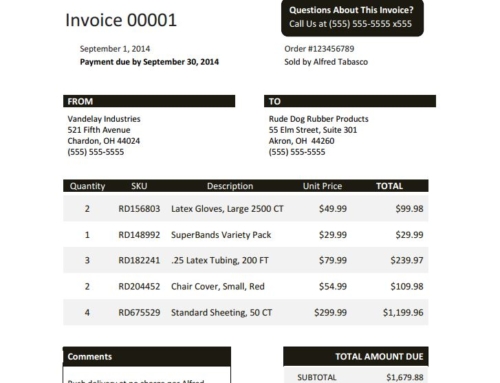When a customer doesn’t pay on time, we can spend a lot of time wondering “why?!”. Wouldn’t it have been much easier for them to have simply paid the invoice on time, instead of causing all of the backlash for themselves and their company? Of course, there are accounts where they really didn’t have the means and money to make the payment. However, there always seems to be customers who try to get out of paying just because. These are the accounts that we rack our brain over.
Although accounts receivable and psychology couldn’t seem like they are any further apart, accounts receivable professionals can truly benefit by understanding the psychology behind why people make payments when they do.
Psychologists study how the human brain affects the choices and behaviors that people make. Understanding the basics of psychology can give accounts receivable professionals insight into why customers choose not to pay – especially when it seems like the easiest decision they could make would be to pay on time. So what are the benefits to understanding the psychology behind accounts receivable?
RECOGNIZE THE SIGNS
By studying the basics of psychology, a collector will have a better grasp of the typical behaviors of non-payer. For example, if a customer is beginning to avoid phone calls or is taking a long time to respond to emails, they may be hinting towards the fact that they aren’t going to pay their bill. Once these common behaviors have been recognized, the collector can make extra effort to reach out to the customer and get the issue resolved.
SPEAK THEIR LANGUAGE
Once the typical behaviors have been recognized by the collector, psychology basics can help the collector know how to respond to the customer. Instead of getting frustrated, angry or lashing out, the collector needs to know how to speak their language. By understanding the psychology of accounts receivable, you can entice the customer to pay on time.
GET THE CUSTOMER TO PAY
The psychology of accounts receivable doesn’t just stop with recognizing behaviors or knowing how to talk to the customer. Psychology can also help us say or do the right thing to get the customer to pay up. Whether this is using incentive programs or threatening to take something away, understanding who your customer is and how they think will allow you to decide the best route to take in getting them to pay.
Psychology wasn’t just a required course that we will never use again. It can actually be useful in many different aspects of our life, from dealing with friends and family members to meeting new people and even in how we approach accounts receivable.




